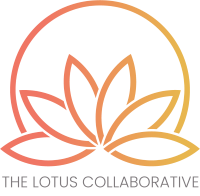|
Recovery In Action
Someone asked me once when the intrusive, annoying, mean and demanding eating disorder voice in their head would stop. When would that voice – or even sometimes voices – that controlled their life for so long leave them alone now that they were working their recovery. She asked when that voice would just STOP!! It’s a really good question. For so many years during my disorder, that voice controlled my life. It told me when, what and how much I could eat, what I could talk about and even when I could hang out with my friends. Sometimes the voice would be nice and helpful, as if it had my best interest at heart. It would tell me how I could do better in my ED, how restricting, purging, exercising, talking pills and denying myself basic necessitates would make me the perfect person I should be. Other times, the voice was downright evil. Punishing me for broken rules and food transgressions with violent and painful compensatory behaviors. The evil voice told me what a disgusting failure I was, that no matter how much pain I was in, I deserved more. It told me I had to work harder, be better, strive for a perfection I could never reach and it told me the consequences for not doing what the voices wanted. I remember the terror, control and fear that came along with that voice. And then I asked myself when the voice finally went away and left me alone. The answer? I don’t even know. What I do know is that slowly, over time as I stopped listening to the voice it got quieter. As I took back control of my life from the voice, it got quieter. And I learned to ignore it because I forced myself to stop believing what it said. Eventually I became able to ignore it all together. Now, I don’t want to make it sound like it was easy – because it definitely wasn’t. In fact, being able to deal with that voice became an issue of life and death. To live through and beyond my disorder, I had to conquer that voice. Listening to it any longer would have killed me. The first thing I remember deciding to do was to stop trusting the voice. I had to consciously tell myself that the voice was lying and then I had to find a voice I could trust. A member of my treatment team because my healthy voice. She was recovered from her eating disorder, which meant that she knew about the voice and how it worked. For a long time, whenever the voice told me anything –either the nice voice or the evil one – I went to her and asked if what the voice said was true. I asked her if I was fat, if I was disgusting, if I was a lazy waste of space that deserved to die. I asked if I was allowed to eat pasta. Very deliberately, I chose to listen to what she said. Every single time, she told me that the voice was lying. Over time I was able to believe her. What began as blind trust became real trust. She was my healthy voice until I could develop my own. The next thing I did was practice telling myself about the lies I was hearing. I told myself that the voice lied. And deliberately, even though it was a challenge, I began to choose to do the opposite of what the voices wanted. If it told me not to eat, no matter how scary or painful it was and no matter how hard I cried or how desperately I wanted to die, I ate. Because I had to believe that the voice was lying. This wasn’t a perfect process. Sometimes, even often in the beginning, the voice won. Sometimes it was so powerful that I had no choice but to obey. But over time I grew stronger. As I got stronger, the voice got quieter. While I was doing this I learned a very valuable lesson. The voice, that for so long was so dominating, turned out to be simply part of my own thought process. Now, here’s the thing: I CANNOT CONTROL MY THOUGHTS!! My brain spits them out randomly and automatically. I don’t get a say. The cool thing though, is that while I can’t control my thoughts, I CAN control ME. There is a gap between the thought and doing what the thought says. I can choose if I want to do it or not. I can even acknowledge the thought, like “oh hey! Skip breakfast? Thanks for the idea, but I think I’ll do it anyways!” Turns out that at this point in my recovery I AM IN CHARGE. Not the voice I have choice and I have the power to sustain and grow my recovery. I can choose to ignore the voice. As I read what I have written, I feel like I have to say – this process was neither quick nor easy. It was years long and there were times when it was impossible and I was back in treatment. Today though, I am grateful I chose to do the work, because I can live my life. Do I think this is over? Yes. Do I still have to deal with the voice sometimes? Yes. If I am anxious or triggered or in emotional turmoil that voice can come back. And believe me. It can come back with a vengeance! It can still tell me that I am not good enough, a waste of space, that I should be smaller, thinner, prettier, less needy, and more perfect. That I should eat less, that I’m not burning enough calories or that I will have a better life or more friends if I lost just a little more weight. The difference is that now, I recognize the voices for what they are. They are my old self-critical thoughts about myself, and I choose not to believe them. It is easy to listen to them, because they promise to fix everything, but I tried that. It didn’t work and I know that the voices lie. I choose not to let them be in charge of my life anymore. I am in charge now. Written by Lauren Howard, Intake and Insurance Director
3 Comments
 It would be entirely unfair, not to mention unrealistic, to expect every foot to fit into a size 6 shoe. So why do we imagine that we can or should make every body fit into a size 2 pair of skinny jeans? Bodies come in all shapes and sizes. Period. It took me a long time to come to terms with the fact that I will never be a 6-foot-tall, 120-pound fashion model. At an optimistic 5’7″, it just isn’t in the cards for me. And trying to make my body into something it’s not is not only impossible, it’s damaging, depressing and demoralizing. On the other hand, accepting our body as it is doesn’t have to be a resignation, in fact I like to think of it more as the begininng of a very rewarding exploration. When we start exploring what our own personal ideal body might feel like, instead of worrying about what society’s ideal body looks like we create space for ourselves that may never have been there before. Space to listen to the internal messages that say things like, “my body feels really good after a fun workout” or “my stomach doesn’t appreciate when I put too much food in it”. Tuning in to these kinds of messages can lead to lasting life changes which are actually enjoyable because they are coming from a place of deep self-connection. Listening to media messages that say you’re too fat or not good enough rarely lead to either thoughts or behavior that make you feel good. Today’s Asipration: Appreciate the here and now body. Make food and movement choices based on how they make your body feel, and how they make you feel in your body. If eating a light lunch or running a mile makes your body feel good, then great! But if you’re making choices that deprive or punish your body in an effort to shape it into that “perfect” media mold, stop, take a breath, and consider making a different, more connected choice. Written by Community Outreach and Education Coordinator, Laina Copley. Written by TLC's Outreach and Education Coordinator, Laina Copley.
Why is it so tempting to categorize foods as either good or bad? Is this really a helpful tool for healthy eating? It’s almost impossible not to do it. While the specifics may vary from person to person (I say milk is criminal, you’re convinced of the evils of soy) the process of food labeling is not uncommon, especially for people who struggle with food. And that, right there, I think is the key. People who have a relaxed relationship with food tend not to label it in terms of good or bad. They don’t have forbidden foods or guilty pleasures (at least not ones that actually leave them feeling guilty). Of course they may be aware of nutrition and try to favor foods that have more nutritional merits over ones that are nutritionally lacking, but they don’t get caught up in the good food/bad food routine that so many of us fall victim to. So why do we do this and why does it end up causing more problems than it solves? I think for most of us labeling foods arises out of a mixture of convenience and fear. The mind naturally creates categories for things to help us process information more quickly. If you’ve already divied foods up into “healthy” and “unhealthy”, which usually becomes “good” and “bad”, then you can quickly make a decision when going down the buffet line (i.e. salad = good, cake = bad) which saves time on thinking. This isn’t so terrible to an extent, as we truly would spend a lot of time and brain power if we had to evaluate and compare every food option we were ever given without any mental shortcuts. The problem arises when we say salad is good and cake is bad so I am never, ever going to eat cake. Ever. Of course that just makes us want it more. Makes us linger at the buffet table looking longingly at the criminal cake that we definitely shouldn’t eat. In my experience, I either end up dreaming about that very naughty cake, imagining how good it would taste and feeling a mixture of deprivation and martyrdom for not succumbing to my desire. OR (and this seems to happen more often), I finally give in and eat the forbidden fruit. Usually when this happens an alarm goes off in my head screaming “Red alert! Red alert! Criminal food on the loose! Run for it!” which then translates into eating another piece and another because hey, I’ve already committed the crime, right? So I might as well take advantage of that double jeopardy loophole… Today’s Aspiration: Try to avoid giving foods moral judgments. Nutritional judgments can be fine if they remain objective (vegetables have fiber, ice cream has saturated fat), but the second you start thinking in terms of good or bad remind yourself that food is neutral. It is not inherently good or evil and your moral character and value as a human being are not dependent on the foods you eat. When we can see food more objectively, it actually helps to diminish our cravings for those “bad” foods, as well as any guilt we may normally feel if we do decide to eat them. |
The
|
2125 Delaware Ave, Suite A, Santa Cruz, CA, 95060
2500 Market Street, San Francisco, CA 94114

 RSS Feed
RSS Feed